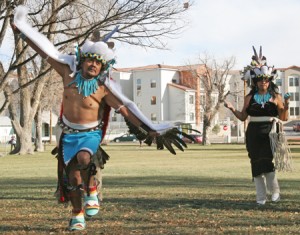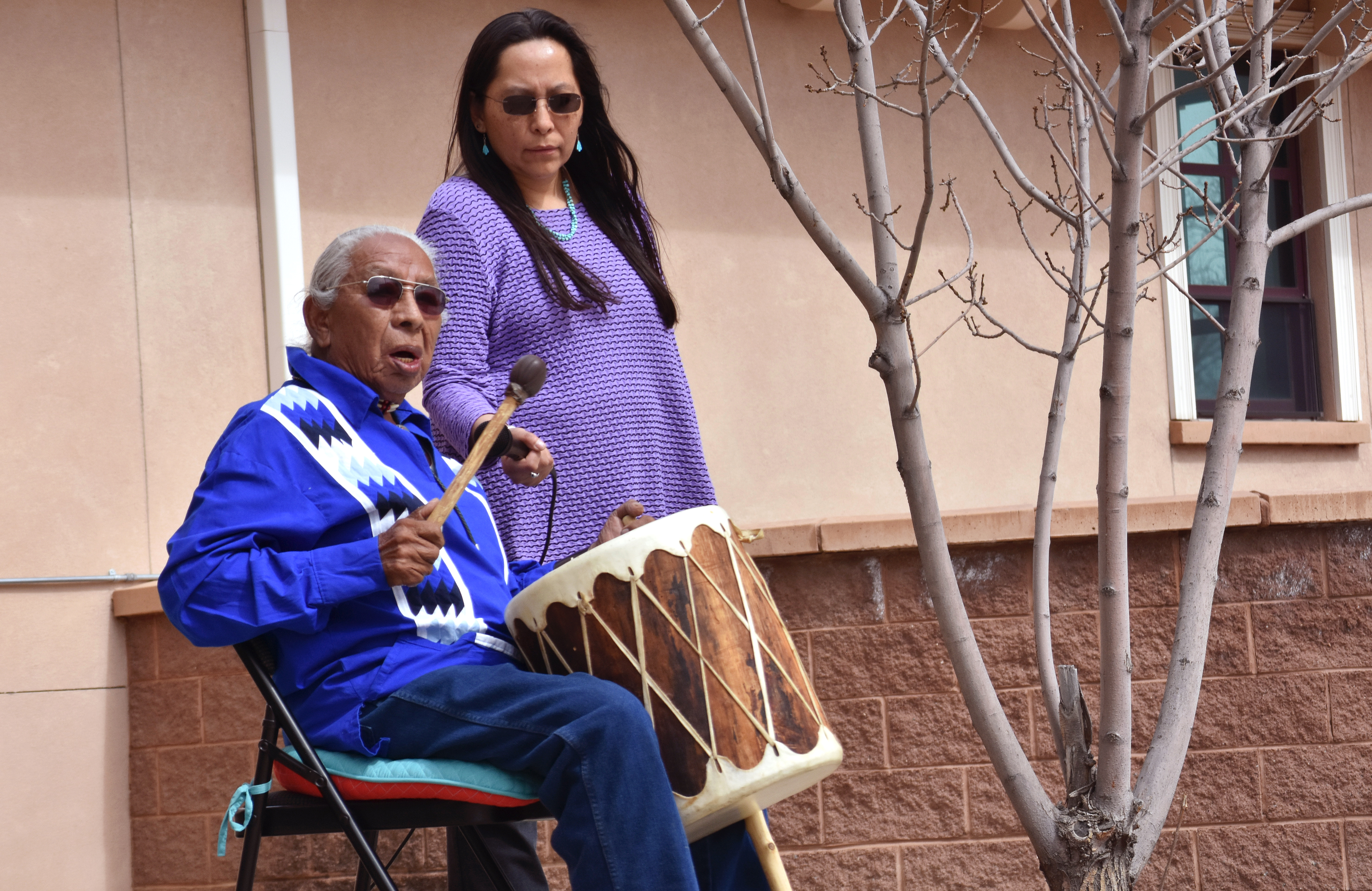 November 18, 2021
November 18, 2021
To honor both the National Hispanic American Heritage Month and the National Native American Heritage Month, Highlands University has offered a range of events to students and the public. The events began Oct. 22, and several remaining events are scheduled through Dec. 3, 2021.
Collectively, the events offered in honor of Hispanic and Native American Heritages is called Expanding Indigeneity Across Space and Time. According to Rebecca Maldonado Moore, social work professor at Highlands and co-chair of the President’s Council on Diversity, Equity, and Inclusion, “indigeneity” is a pan-group identity that encompasses a broad range of ethnicities, including those who identify as Native, Mexican, Hispanic, and/or Chicano.
“When we’re talking about indigeneity, it’s those lived experien
ces of individuals who are indigenous, whether they are on the south side of the border on the north side of the border,” said Maldonado Moore, who identifies as Northern Arapaho and Mexican American. “All of us have some type of indigenous connection to the land.”
Maldonado Moore said she and fellow co-chair, Adrian Sandoval, director of Highlands’ Center for the Study of Diverse Populations, wanted to ensure that the events and activities included a broad range of identities. To kick things off at the end of October, professor of language and culture Norma Valenzuela, presented on “Querencia.”
“Her presentation really was about identity,” said Maldonado Moore. “And then when we moved into the Yazzie-Martinez ruling, which was also about identity from a legal perspective about what’s going on in education in the state of New Mexico.”
These events were followed by the viewing of “Reel Injuns” and a discussion about film critique facilitated by language and culture professor Eric Romero and sociology professor Jacob Avery. This event proved to be so popular the critique template used for “Reel Injuns” will be used to facilitate a discussion of the film “Wind River” on Dec. 3 at 3 p.m. “Wind River” was screened on Nov. 17 and highlights the crisis of Missing and Murdered Indigenous Women.
“We’re going to be looking at what Wind River was really all about and we asked everyone to view a video called ‘Classified Powerless,’ before we have the conversation about Missing and Murdered Indigenous Women,” said Maldonado Moore. “I would highly recommend everyone do the same, because it is a political, legal, and social, personal issue that is impacting thousands of people’s lives.”
On Nov. 11, Glenabah Martinez of the University of New Mexico’s Institute on the Study of “Race” and Social Justice, led a writing exercise focused on indigenous identities. Using a template, participants completed I Am poems, and Maldonado Moore said recordings of the completed poems will be streamed at 6 p.m. on Dec. 3.
“The issue is that in educational systems, there are always going to be these stereotypes about who they think we are, but the reality is, we know who we are, we know our tribal traditions or our culture’s identities,” said Maldonado Moore. “But what also happens is that we have some students in higher ed who are also wrestling with who they think they are from an indigenous perspective. These kinds of sessions we provide are an opportunity for individuals to begin to explore their own identities.”
Other Indigeneity events included a presentation on bridges between border, Mexican, Chicano, Spanish and Indigenous identities, and a presentation on the Corn Pollen Curriculum that integrates spiritual, mental, emotional, and physical wellbeing into its structure.
On Friday, Nov. 19, Rene Begay (Diné), professional research assistant with the Centers for American Indian and Alaska Native Health with the University of Colorado School of Public Health, will be giving a presentation on her research on genomics, or the study of genes, within Indigenous communities. The presentation will be available on Zoom: https://nmhu.zoom.us/j/97330319209
Immediately following Begay’s presentation, three different dances will be performed live and on video in the Student Union Building at 1 p.m. The dances include Danza Azteca, Native TikTok dancers, and Women’s Southern Traditional Powwow dancing.
Maldonado Moore credits the series of Indigeneity events with the work of the President’s Council on Diversity and Inclusion. She said the Council has been in operation for six years and consists of 18 members who are working to advance appreciation for diversity and inclusion across the Highlands University community.
“Our culture is intact; many tribal groups still attempt to maintain those traditions that give them that sense of place within their community, and within whatever sphere that they’re operating in,” said Maldonado Moore. “Here in higher ed, we have an opportunity to learn from a Western perspective, but we also have an opportunity to teach from our perspective and that’s really what we’re trying to do with all of these different events.”

